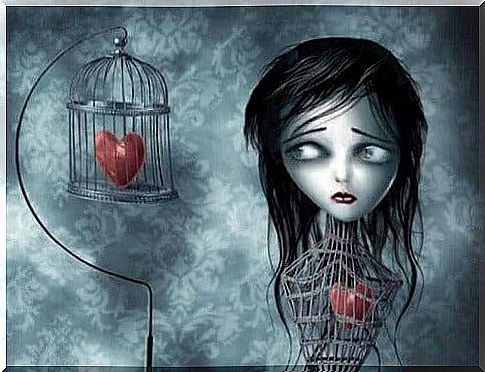Unconscious Narcissism In Parent-child Relationships

We think of narcissism as the love of oneself and the constant search for satisfaction through admiration. Unconscious narcissism is also present in parental relationships. The parents then project an enormous urge to live and love on their children.
Often, however, this urge is influenced to a greater or lesser extent by their desires. It colors the relationship with a form of narcissism that is not characterized by self-importance. Yet there is still a longing desire or expectation.
The literature and theory deal more with the way children interact with their parents than the inverse relationship. Thus, it is difficult to find clear references in the literature to how narcissism is present in parental relationships.
In this case, narcissism means the way the parents view something outside of them as their own or see their children’s traits as their own.
Unconscious narcissism and projection
Freud was the first to show interest in this phenomenon. He devised a theory in which he described the existence of the tendency to ascribe to the child all perfections. (We should point out, however, that he only talked about how the parents formed relationships with their children).
We observe this in the beginning of parental relationships when the baby becomes the majesty.

The phenomenon of “His Majesty, the Baby” is a way of renewing in adults the privileges they imagine they had as children and had to leave behind.
We then observe how parents give their children excessive privileges and spoil them. They worship their properties. Moreover, they demand that the development of their child proceeds according to their master plan.
Ultimately, many parents project “their ideal selves” onto their children. They then turn their children into a “perfected and perfected” version. It’s that version the parents think they were or would have loved to have been.
In this sense, the parents project their ideal self onto their child. They thus make the child responsible for the frustrations and deepest desires of the parents’ ego.
When we talk about unconscious narcissism and projection, a parent’s love actually becomes more of a love for oneself. It is a love for how they believe they were as children or how they wanted to be. This is also a way of unfolding this love affair.

How does subconscious narcissism build up?
Professionals dealing with the field of parent-child relationships can delve deeper into unconscious narcissism from their clinical experience.
It is a form of narcissism that can be present in this type of relationship. Psychoanalyst Juan Manzano argues that there are four essential elements that build the construction of this parental unconscious narcissism:
1. Projection of the parents on the child
The parent projects the own characteristics he possessed as a child or wished to have as a child. They no longer have those qualities or they are aspects that they feel they lacked. The father or mother then projects them onto their child.
They do not want their son or daughter to miss what they desired or wished. In their children they also see the perfect representation of their ideal self. It is possible that this projection is largely unconscious. It is also possible that the parent never expressly thinks about his behavior.
2. Complementary Parental Identification
The father or the mother will see the son or daughter as a part of themselves. Depending on who the parent is, they may also see the child to a greater or lesser extent as an inner object.
By this we mean that the parent identifies with the child in some way. They then feel an exaggerated sense of owning the child. This prevents the child from building itself up.
3. A specific goal
We’ve already mentioned it. The purpose of this projection and of the complementary identification is to achieve satisfaction in someone of a narcissistic nature. However, there may also be other purposes for this form of parental behavior. For example, it could be related to the denial of a loss.
4. A relational dynamic
The interaction is based on roles previously attributed. So in the end it will surpass the imagination. This means that it will shape the development of relational dynamics with other people and in the child itself. Essentially, this kind of relationship creates a fictional profile that becomes a reality over time.
In pathological cases, children can react in different ways. Sometimes they take on the roles that have been imposed on them. They then create disorders that will affect them later. It will later lead to them revolting because they feel abandoned.
This feeling of abandonment is due to the simple reason that the relationship between the child and the parent is nonexistent or limited. In this sense, the child may begin to feel that his desires are not his own but imposed by parental expectations.
Note: The contents of this article were taken from Juan Manzano’s lecture “Narcissistic Scenarios of Parenting.”









